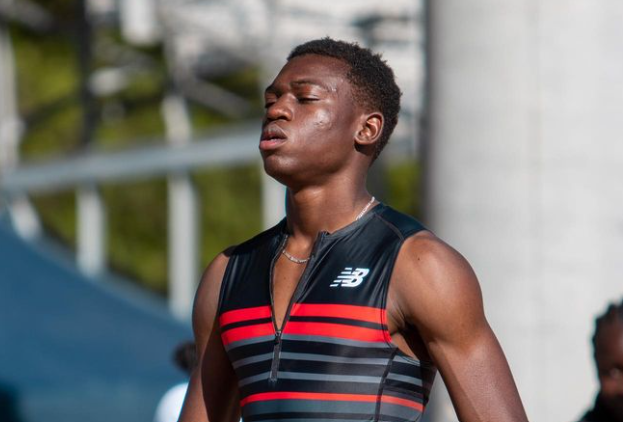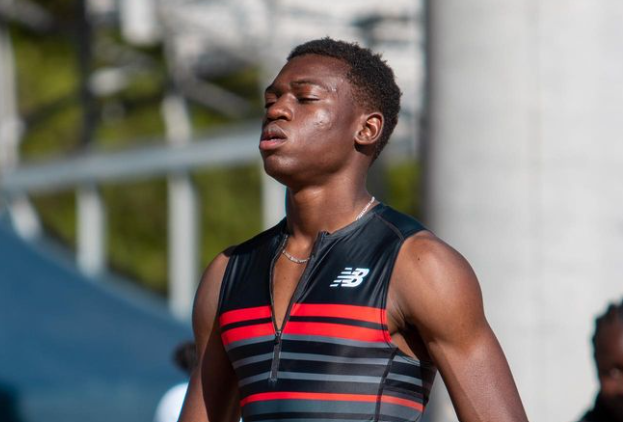



In a shocking revelation by the Athletics Integrity Unit (AIU), Issam Asinga, the Surinamese star sprinter, has been banned from athletics for four years after a doping violation. After testing positive for GW1516 in his urine sample, Asinga was provisionally suspended from August 9.
Watch What’s Trending Now!
Travis Miller’s recent post on X revealed Asinga’s fate. The post notifies that “AIU has banned 19-year-old Issam Asinga four years.” The post also elaborates that the ban came after his blood test came back positive for traces of the prohibited substance GW1516, which is a hormone and metabolic modulator that the World Anti-Doping Agency (WADA) has banned.
AIU has banned 19-year-old Issam Asinga four years.
Ban period start date: August 9th, 2023. pic.twitter.com/TyknH50AcL
— Travis Miller (@travismillerx13) May 27, 2024
The ban will be for four years and will be considered to have started from August 9, 2023, days after Asinga made the world take attention at the South American Championships. Additionally, the sprinter is also directed to pay the World Athletics a fine of £1,000. If these weren’t already a severe blow to the guts, all of Asinga’s results from July 18, 2023, onwards will be considered nullified henceforth, meaning that his double glory from last year’s Sao Paolo tournament is now rendered void.
Issam Asinga’s misfortune makes way for the previous record to be reinstated
With Issam’s record as the U20 world record holder now disqualified, Botswana’s Letsile Tebogo is now tops the chart for the 100m race in the age bracket. Tebogo ran 9.91 in the race in 2022, which was surpassed by Asigna last year with 9.89. However, the AIU’s decision is expected to straighten out the records soon. However, it cannot be claimed that Asinga’s fate was entirely unexpected.
Ahead of the 2023 Budapest World Championships, Issa was temporarily suspended from competing in the men’s 100m sprint event. The directive came as speculation about his usage of performance-enhancing drugs was already in the air after the South American Championships. While the athletes claimed that the test results could be attributed to Gatorade Recovery Gummies, which he took before his record-making run, the AIU seems to differ in its opinion.
The AIU reported that the samples sent by the runner “contained significantly more GW1516 on the outside than on the inside, which practically excludes any contamination by raw ingredients during the manufacturing process“. While many fans aren’t on board with Issam trying to play off the allegations, others seem to think a lax on allowing him to at least practice during the ban period should be the way to go.
With the college athlete slammed with a significant ban, it waits to be seen how he takes the situation as a learning moment in his career and bounces back from the ordeal when he returns to track.

